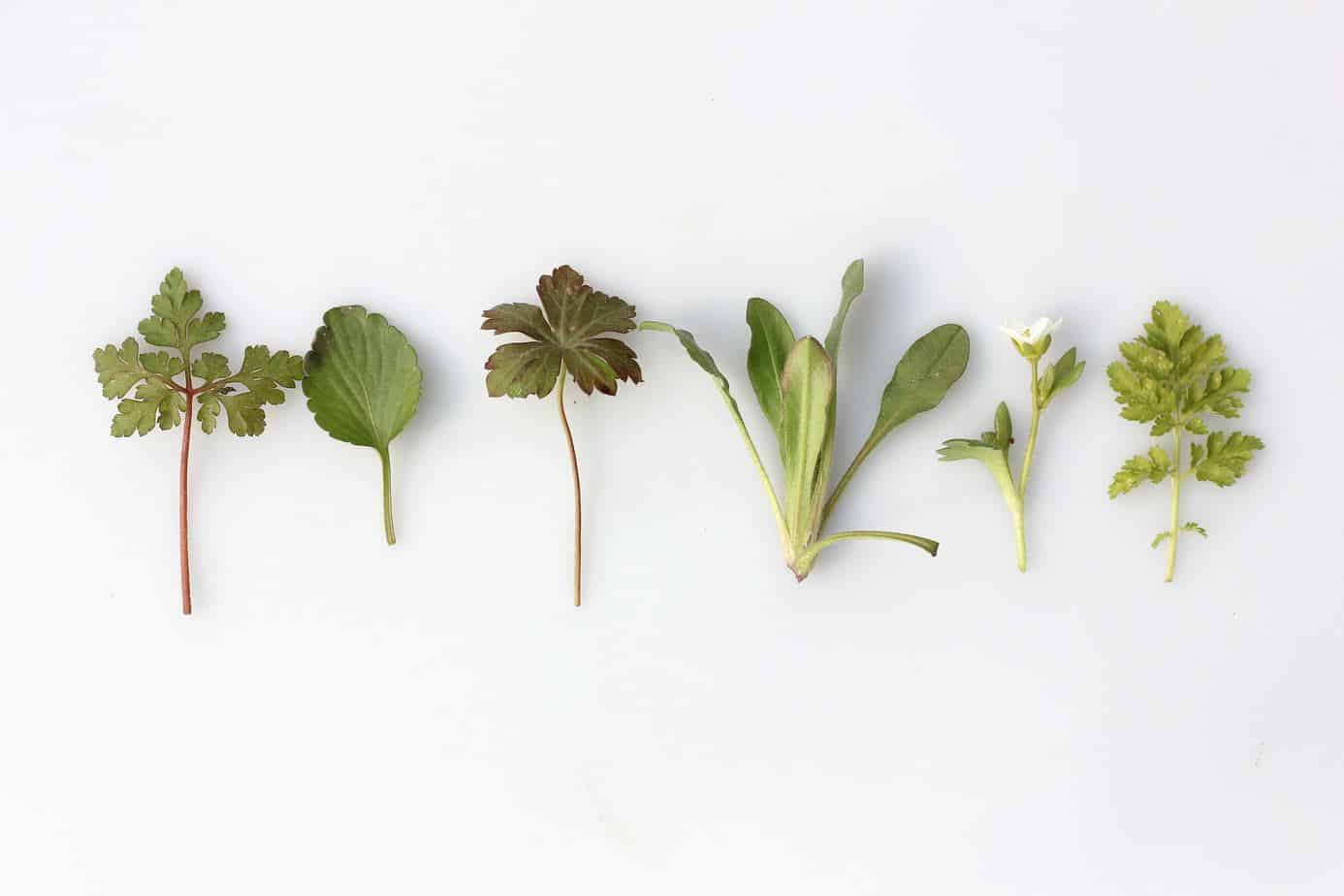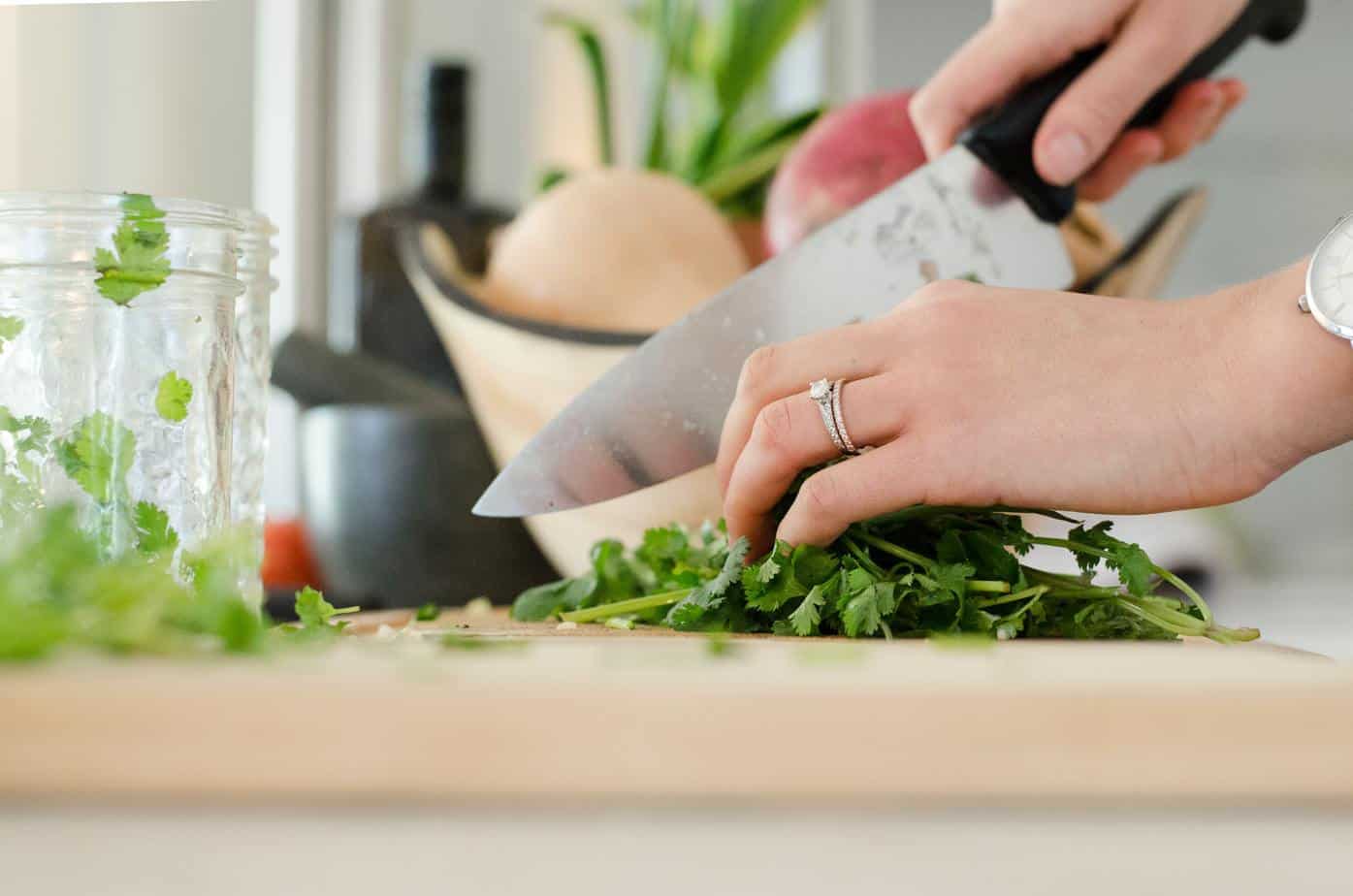How To Wash Fresh Herbs To Help Prevent Bacterial Contamination
A step by step method that is a quick and easy way to remove bacteria on most fresh herbs to help them last longer.

Who doesn't love the burst of freshness and flavor that fresh herbs add to your dishes? Their punch of brightness can take any dish from drab to fab with a few chops of the knife. Before you go racing to the garden or farmers market and then put those delicious herbs into your next dish, you should always be washing your fresh herbs before cooking with them.
No matter the type of produce you are going to be eating, herbs, fruit, etc., you should always carefully wash it before consumption. Fresh herbs and produce are often handled by many different people both in the stores and in the fields and packing plants prior to it arriving into your home kitchen. Regardless of the herbs are traditionally grown, or are certified organic, the growing, harvesting, packaging, and sales processes all can leave bacteria looming on your fresh herbs.
Doesn't the heat from the cooking process kill the bacteria?
While most foodborne illness bacteria die at 141 degrees F. That doesn't eliminate the "icky" factor of consuming dirt, environmental residue, traces of manure, or other undesirable residues that could be lurking on the surface of your herbs. In the case of more widely used fresh herbs that are grown close to the ground, often eaten uncooked such as parsley, basil, cilantro, as well as lettuces, can pose a much larger potential for health risk.
This is due to the fact they often don't undergo the cooking process. One of the most commonly bacterially contaminated herbs is cilantro also known as coriander. This herb is often covered in the gritty sand it's grown in. Sometimes cilantro is sold with its roots still left intact, potentially inviting unwanted bacteria and grit into your food.

According to a report from the United States Food and Drug Administration:
From 1996 to 2015, the FDA reported nine outbreaks linked to basil, parsley and cilantro, which resulted in 2,699 illnesses and 84 hospitalizations.
How do I make my fresh herbs last longer?
After you've got your herbs either out of your garden, from your farmers market, or local mega grocer, bring them home, and before they go into your fridge give them a rigorous visual inspection. Be on the lookout for little critters like ladybugs, caterpillar larvae, as well as other undesirables. Remove any wilted or bad leaves, and discard the waste into your compost bin. Those bad leaves can actually accelerate the promotion of decay and drastically shorten the freshness time of your herbs.
After you've given your fresh herbs a good visual inspection, it's time for them to be washed.

How To Wash, Dry, and Store Fresh Herbs So They Last Longer:
- Always wash your hands with soap and water prior to handling food.
- Remove and discard all packaging remnants from your fresh herbs, including rubber bands, twisty ties, or any other inedible objects.
- Visually inspect and discard any wilted, rotten, or damaged stems or leaves.
- Run the fresh herbs under gently running cold water ensuring that you cover all surfaces with running water for at least 20 seconds.
- Gently shake tender herbs over the sink to remove excess water, the more robust herbs such as rosemary, cilantro, parsley that have heartier stems, can be spun dry in your salad spinner.
- Wrap the herbs in a single layer of very slightly damp paper towel. You may be able to just use the residual moisture from the rinsing to achieve this.
- Place the paper towel wrapped fresh herbs into a zip-top freezer bag and seal.
- Store the fresh herbs in the sealed zip-top bag until ready for use. Pay extra attention that you don't put the herbs in the coldest parts of your fridge, which is often the bottom meat drawer, or at the back of the top shelf. These areas are often way too cold for fresh herbs and will cause them to fail prematurely or even to freeze.
Alternately if you have very delicate herbs like tarragon, chervil, or even cilantro. Simply fill a bowl with cold water, remove the leaves from the stems and float the leaves in the cold water while making a gentle circular vortex stirring action. Stirring gently for 20 seconds, then transfer the delicate leaves to a section of paper towel to dry.
Food safety and the prevention of foodborne illness should never be taken lightly.
Following these easy steps can prevent bacterial contamination of your food from fresh herbs.
Check out our other recipes, tips & tricks for Easy, Effortless, Entertaining from AWG Private Chefs!
- How to Thaw, Prepare, Cook, and Carve the Perfect Turkey That's NEVER Dry!
- 10 Must Haves For Every Home Kitchen
- 5 Delicious Must Have Fall Cocktail Recipes
- 7 Reasons Why People are Hiring a Private Chef for Their Next Dinner Party
About the Author: Certified Master Chef, Sommelier & Wine Educator, Sean Andrade is the executive chef/owner of AWG Private Chefs, named the #1 Private Chef Company in California. Chef Sean has worked in the restaurant and hospitality industries worldwide for more than 25 years. His company AWG Private Chefs offers highly custom-tailored, bespoke private chef dining experiences, and private event catering in over 30 countries around the globe.